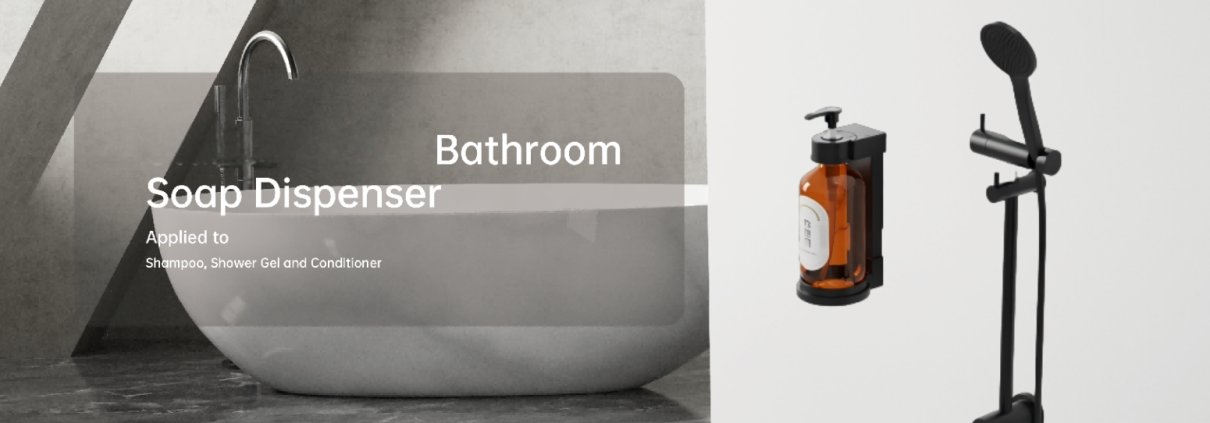The End of the $800 De Minimis Rule: What It Means for Businesses, Hotels, and Consumers Introduction
Former U.S. President Donald Trump announced plans to terminate the de minimis rule, which allowed imported goods valued under $800 to enter the U.S. without tariffs or extensive customs scrutiny. This policy change has far-reaching implications for businesses, particularly those reliant on low-cost imports—such as hotels stocking soap dispensers and other amenities.
The change to the “de minimis” exemption was first implemented on goods from the Chinese mainland and Hong Kong in May, as China is the largest source of these shipments.
Low-cost online stores like Shein and Temu, both extremely popular with shoppers in the US and worldwide, were among those that would likely be directly affected, warned Z. John Zhang, a professor of marketing at the Wharton School of the University of Pennsylvania.
But Zhang told China Daily that the recent rule change will also hit many other businesses in China that do business with the US, as it’s “not just fast fashion in this case, it’s really all kinds of goods under the value of $800”.
This policy has had an impact on many manufacturers in China, such as Leekong, a Chinese manufacturing tycoon whose company supplies millions of soap dispensers to American hotels. With the de minimis loophole closed, businesses like his will face higher costs, logistical hurdles, and potential shifts in supply chains.
In this blog post, we’ll explore:
– The history and purpose of the de minimis rule
– Why Trump moved to eliminate it
– The impact on hotels, soap dispenser suppliers, and manufacturers like Leekong
– Alternative strategies for businesses to adapt
- What Was the De Minimis Rule?
The de minimis threshold (Latin for “minimal things”) allowed shipments valued at less than $800 to enter the U.S. tax-free and with minimal customs checks. Established under the Trade Facilitation and Trade Enforcement Act of 2015, this rule was designed to:
– Speed up e-commerce deliveries (e.g., Amazon, AliExpress, Wish)
– Reduce administrative burdens on small businesses and customs
– Encourage cross-border trade, particularly from China
For years, companies—especially those importing small, low-cost items like soap dispensers, toiletries, and electronics—relied on this rule to keep costs low.
Key Impacts of the De Minimis Rule Termination
- E-Commerce & Small Businesses
Higher Costs for Consumers: Online shoppers will pay $80–$200 extra per international order.
Small Businesses Squeezed: U.S. and Canadian sellers (e.g., Etsy shops) lose cost advantages, facing new paperwork and delays.
Chinese E-Commerce Giants Hit: Temu and Shein, which relied on direct-to-consumer shipping, must restructure supply chains or absorb 54–120% tariffs.
- Hotels & Soap Dispenser Suppliers
Bulk Importers Face Tariffs: Hotels sourcing cheap soap dispensers, toiletries, and linens from China will see 25%+ cost increases.
Supply Chain Shifts: Manufacturers like Lee Kong may relocate production to Vietnam or Mexico to avoid tariffs.
- Global Trade & Geopolitical Fallout
China’s Export Model Disrupted: The $800 loophole was a key enabler of China’s “white-label” e-commerce boom.
U.S. Inflation Risks: Low-cost goods (e.g., $7 T-shirts, $60 board games) will become more expensive.
Trade War Escalation: The move intensifies U.S.-China tensions, alongside existing 24% suspended tariffs.
- Why Did Trump End It?
Trump’s decision to scrap the $800 exemption aligns with his broader “America First” trade policies, including:
– Tariffs on Chinese goods (starting in 2018)
– Crackdown on customs loopholes that benefited foreign manufacturers
– Encouraging domestic production over reliance on imports
Key Reasons for Termination:
Preventing Abuse: Many Chinese sellers (including Leekong’s soap dispenser empire) exploited the rule by shipping bulk orders in small, separate packages to avoid tariffs.
Protecting U.S. Manufacturers: Domestic producers argued that the rule gave foreign competitors an unfair advantage.
Revenue Generation: The U.S. government loses billions in potential tariffs annually due to de minimis exemptions.
- Impact on Hotels & Soap Dispenser Suppliers
- Higher Costs for Hotels
Hotels rely on cheap, bulk-purchased amenities—soap dispensers, shampoos, towels—often imported from China. Without the $800 exemption:
– Prices per unit will rise (due to tariffs + customs fees)
– Supply chain delays (more inspections = slower deliveries)
– Possible switch to domestic suppliers (but at higher costs)
Case Study: Leekong’s Soap Dispenser Business
Leekong’s company supplies millions of soap dispensers to U.S. hotels annually. Under the old rule, he could ship hundreds of small packages tariff-free. Now:
– Each shipment may incur 25%+ tariffs (Trump’s China rates)
– Profit margins shrink, forcing price hikes
– Competitiveness drops vs. U.S.-made alternatives
- Shift in Supply Chains
Some businesses may:
– Relocate production to tariff-exempt countries (Vietnam, Mexico)
– Stockpile inventory before full policy enforcement
– Invest in automation to offset rising costs
- How Businesses Can Adapt
- Alternative Sourcing Strategies
– Nearshoring: Partner with Mexican or Central American suppliers.
– Diversify Suppliers: Avoid over-reliance on China (e.g., look to India, Thailand).
– Bulk Shipping: Consolidate orders to reduce per-unit tariffs.
- Lobbying & Policy Influence
– Industry groups (e.g., American Hotel & Lodging Association) may push for exemptions.
– Legal challenges could delay enforcement.
- Passing Costs to Consumers
– Hotels may charge higher rates or cut back on free amenities.
– E-commerce sellers (Amazon, eBay) will raise prices.
- Conclusion: A New Era for Trade
The end of the $800 de minimis rule marks a significant shift in U.S. trade policy—one that benefits domestic manufacturers but strains import-dependent businesses. For hotels, soap dispenser suppliers like Lee Kong, and e-commerce sellers, adaptation is crucial.
Will companies absorb the costs, pass them to consumers, or relocate production? Only time will tell. One thing is certain: global trade will never be the same.
Final Thoughts
In fiscal year 2024, $64.6 billion worth of goods in over 1.36 billion small shipments were utilized de minimis, according to Yale University and US Customs and Border Protection.
Now, all countries that send items to US customers or businesses outside of the international postal network will be subject to the rule change starting on Aug 29, Trump’s executive order stated on Wednesday. Trump’s de minimis termination reshapes global e-commerce, forcing businesses to rethink supply chains, pricing, and market strategies. While it protects U.S. manufacturers, consumers and small importers face higher costs and delays.
Will this policy backfire by fueling inflation? Or will it successfully bring manufacturing back to America? The answer may determine its political and economic legacy.
– For consumers: Expect higher prices on small imported goods.
– For businesses: Rethink supply chains and pricing strategies.
– For policymakers: Balance protectionism with economic efficiency.
What do you think? Will killing the de minimis rule help or hurt the U.S. economy? Let’s discuss in the comments!



